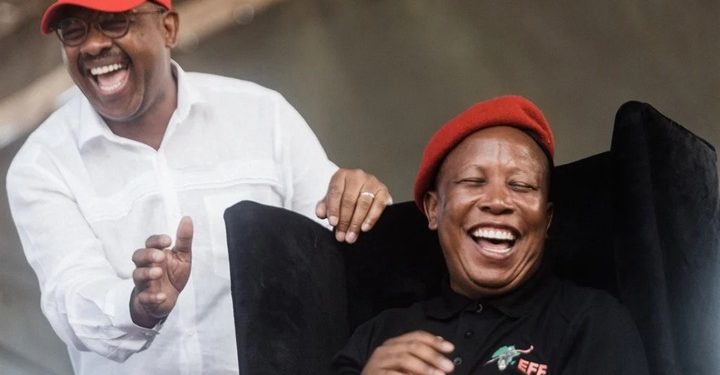- Advocate Dali Mpofu asserts his right to belong to the ANC, EFF, and the MK Party, citing his lifelong commitment to South Africa’s liberation and justice movements.
- While Mpofu claims each party’s ideology holds value, critics argue that his multi-party loyalty could lead to conflicts of interest, given the parties’ divergent stances.
- Supporters view Mpofu’s stance as a symbol of unity and inclusiveness, reflecting a shift in South African politics toward complex alliances ahead of the 2024 elections.
In a bold statement, prominent advocate and political figure Dali Mpofu recently declared that he has “earned the right” to be affiliated with three major South African political organizations—the ANC, the EFF, and the newly formed MK Party. Known for his legal acumen and dedication to South Africa’s liberation causes, Mpofu explained that his deep-rooted commitment to justice and equality allows him to embrace the ideologies of these parties simultaneously.
Mpofu, who has been historically associated with the ANC and later joined the EFF, explained at a recent event that he sees his role as transcending traditional party boundaries. “I am a product of the struggle for freedom,” Mpofu stated. “My commitment to the people of South Africa allows me to support the ANC’s legacy, the EFF’s radical economic vision, and the MK Party’s focus on military veterans without conflict.” Mpofu argues that each party reflects an important aspect of South Africa’s political landscape, whether it be the ANC’s historic impact, the EFF’s pursuit of economic transformation, or the MK Party’s dedication to veterans’ welfare.
Mpofu’s decision to align with multiple parties has ignited debate. Supporters laud his dedication to uniting various causes, seeing it as a reflection of South Africa’s shifting political alliances. However, critics raise concerns about potential conflicts of interest, especially as the ANC, EFF, and MK Party each represent different and often opposing approaches to policy. The ANC, South Africa’s ruling party, typically favors a more traditional stance, while the EFF is known for its radical and confrontational approach. Meanwhile, the MK Party, newly established by military veterans, is focused on veterans’ rights and the welfare of former freedom fighters.
Some political analysts interpret Mpofu’s stance as indicative of broader trends in South African politics, where loyalty to a single party is increasingly rare, and cross-party support appeals to a diverse base. With the 2024 elections on the horizon, Mpofu’s multi-party affiliation could attract voters who see value in various aspects of the ANC, EFF, and MK Party ideologies. As Mpofu pursues this unique political course, his position underscores his enduring commitment to transformative change in South Africa. Whether his strategy will strengthen or dilute his influence remains to be seen, but Mpofu’s stance has once again made him a focal point in South Africa’s political landscape.






















